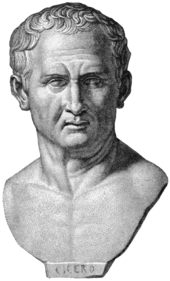
Back قال ذلك بنفسه (مغالطة) Arabic Ipse dixit German Ipse dixit Spanish Ipse dixit Basque Ipse dixit French Ipse dixit HE Ipse dixit Croatian Ipse dixit Italian Ipse dixit Latin Ipse dixit Dutch

Ipse dixit (Latin for "he said it himself") is an assertion without proof, or a dogmatic expression of opinion.[1][2]
The fallacy of defending a proposition by baldly asserting that it is "just how it is" distorts the argument by opting out of it entirely: the claimant declares an issue to be intrinsic, and not changeable.[3]
- ^ Whitney, William Dwight (1906). "Ipse dixit". The Century Dictionary and Cyclopedia. Vol. 4. Century. pp. 379–380.
- ^ Westbrook, Robert B. (1991). John Dewey and American Democracy. Cornell University Press. p. 359.
- ^ VanderMey, Randall; Meyer, Verne; Van Rys, John; Sebranek, Patrick (2012). COMP. Cengage. p. 183. "Bare assertion. The most basic way to distort an issue is to deny that it exists. This fallacy claims, 'That's just how it is.'"
© MMXXIII Rich X Search. We shall prevail. All rights reserved. Rich X Search